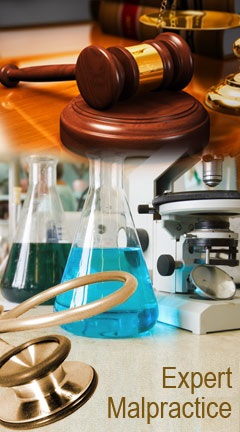Archival Notice
This is an archive page that is no longer being updated. It may contain outdated information and links may no longer function as originally intended.
Home | Glossary | Resources | Help | Course Map
In recent years, the field of law has been developing a new cause of action designed to hold expert witnesses responsible for their negligent professional behavior, as are doctors and lawyers. The laws concerning expert witness negligence have developed largely in response to a recent recognition that such negligence is not uncommon.
Erroneous conclusions have been reported, even within well-accepted scientific techniques such as fingerprint identification. In 1987, federal and state officials had to review 159 criminal cases in North Carolina after local authorities discovered what they determined to be questionable fingerprint identifications. A similar situation arose in 1993 in New York.
Pathologists have been shown to have faked hundreds of autopsies or committed grievous errors in determining the cause of death.
Solutions offered by the scientific and legal communities to curb abuses by experts include:
- Capping expert witness fees.
- Prescreening experts.
- Using only court-appointed experts.
- Adhering to a strict code of ethics.
- Conducting peer review.
- Establishing a science court.
Additional suggestions include prosecuting fraudulent experts and, most significantly, allowing the opposing counsel to cross-examine.
The reality, however, is that most lawyers do an inadequate job of cross-examining experts. One reason for this is improper preparation. Another reason may be that lawyers are often reluctant to incur the risks involved in challenging experts in their own fields.
Many lawyers do not even avail themselves of experts' assistance in preparing for cross-examination and are therefore unable to effectively challenge statements made by the experts. Finally, the vast majority of civil and criminal cases are settled or plea bargained before trial. Thus, the expert may never be subjected to rigorous questioning during the adversary process.
To date, none of the solutions offered to curb abuses by experts have succeeded in accomplishing their goal. Arguably, attempts at monitoring expert testimony may serve to deter some expert negligence and may also result in experts being held personally accountable.


